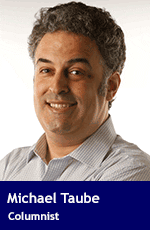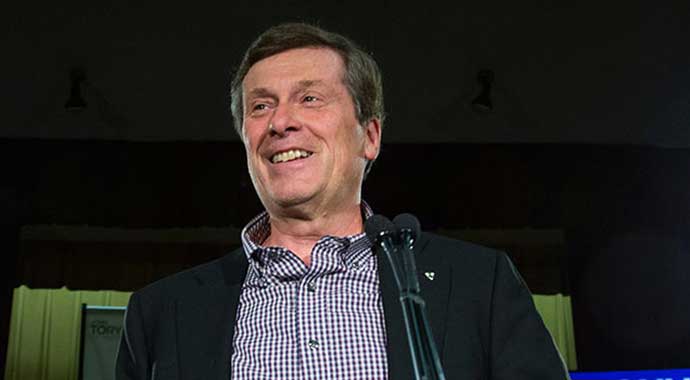 Several Canadian provinces are in the midst of municipal elections this month.
Several Canadian provinces are in the midst of municipal elections this month.
B.C. residents voted on Oct. 15. Many mayors were either re-elected or acclaimed. A few were defeated, including Colin Basran in Kelowna (by businessman Tom Dyas), Mike Morden in Maple Ridge (by former Liberal MP Dan Ruimy) and Fred Haynes in Saanich (by former city councillor Dean Murdock). The most significant mayoral result was Ken Sim defeating Kennedy Stewart in Vancouver, hopefully leading the city to have a business-oriented, right-leaning focus for a few years.
Manitobans will head to the polls on Oct. 26. The Winnipeg mayoral election will be the biggest prize. Two-term incumbent Brian Bowman isn’t running, which opened the door to a competitive race. Former Winnipeg mayor and Ontario Liberal cabinet minister Glen Murray is leading in the polls. City councillor Kevin Klein, social entrepreneur Shaun Loney, former Liberal MP Robert-Falcon Ouellette, former Manitoba Liberal Party leader Rana Bokhari and others are trying to stop Murray’s momentum.
 |
| Related Stories |
| What annoys me about municipal elections
|
| Local elections: democracy as it is meant to be
|
| Ford should shelve his plan to give mayors new powers
|
| Keep an Eye on Ontario |
As for Ontario, the ballots will start being counted on Oct. 24.
There are several intriguing mayoral races this year. Former radio host and businessman Mark Sutcliffe (whom I endorsed) and city councillor Catherine McKenney are locked in a fierce battle in Ottawa that’s too close to call. Former Ontario Liberal leader Steven Del Duca is running to become Vaughan’s next mayor and was endorsed on Oct. 7 by outgoing mayor Maurizio Bevilacqua. Thunder Bay is an open race being contested by several candidates, including former Liberal MP and mayor Ken Boschoff, Thunder Bay Chronicle-Journal publisher Clint Harris and city councillor Peng You. In Hamilton, former Ontario NDP leader Andrea Horwath is polling ahead of former Liberal MP and mayor Bob Bratina and former Hamilton Chamber of Commerce President/CEO Keanin Loomis.
One of the few mayoral races that’s not in doubt is in the province’s largest city, Toronto.
John Tory is the incumbent mayor. He’s worn many hats in his career, including Ontario PC leader, Rogers Media and Rogers Cable CEO, CFL Commissioner, journalist for CFTR and CHFI, and a Newstalk 1010 radio host. He lost his inaugural Toronto mayoral run in 2003 to city councillor David Miller but won in 2014 (over Ontario Premier Doug Ford and former NDP MP Olivia Chow) and 2018 (over former chief city planner Jennifer Keesmaat).
Although Tory had previously stated two mayoral terms would be enough, he decided to run again. His reasons were likely varied, but there could have been some additional motivation in achieving a historical moment. Toronto’s longest-serving mayor is Art Eggleton, who held this position for 11 years (Dec. 1, 1980 to Nov. 30, 1991) before becoming a Liberal MP and cabinet minister. If Tory won again and served just past the third year of his third term, he would move ahead of Eggleton.
Several potential challengers, including city councillors Mike Layton and Joe Cressy, decided against running against Tory. (Both men aren’t running for re-election at City Hall, either.) His only competition are little-known candidates like Gil Penalosa, a former Commissioner of Parks, Sport and Recreation in Bogata, Colombia, retired police officer Blake Acton and project coordinator/activist Chloe-Marie Brown.
An Oct. 8 Forum Research poll showed Tory well in the lead at 56 percent. Penalosa was second at 20 percent, followed by Acton and Brown at six percent apiece.
Tory hasn’t had to expend much energy in his re-election bid. He’s been out and about, but his presence has been more limited than in previous municipal campaigns when it comes to rallies, meet-and-greets and door-knocking. Plenty of his lawn signs are visible in Toronto, but it obviously hasn’t been a high-pressure situation to plaster the entire city with his name. There have only been two mayoral debates, to which few people paid close attention.
Was Tory beatable?
A Red Tory, or left-leaning conservative, the Toronto mayor often touts his support for small government, low taxes and more private enterprise. He’s kept property taxes at or below the rate of inflation. He’s attracted new business, which helped create more jobs and economic opportunities.
Tory has also spent an estimated $8 billion on his SmartTrack plan for transit, and it’s still not finished. He proposed a legacy project, the Rail Deck Park, which could cost anywhere from a reported $1.66 billion to over $3.7 billion. He tabled a motion in June 2020 to “detask” and reform police services. He’s called several times for an unnecessary city-wide gun ban. He struggled with the carding issue involving police and random checks in communities where minority groups claimed they were unfairly targeted.
The right type of mayoral candidate could have potentially been competitive against Tory. Whether this individual could have defeated him is difficult to say – and seems unlikely.
This has been a cakewalk or, if you prefer, a sleepwalk for the incumbent Toronto mayor. Unlike other Ontario-based mayors, Tory won’t lose any sleep on election night and will likely enjoy eating a celebratory cake before the polls have closed.
Michael Taube, a Troy Media syndicated columnist and political commentator, was a speechwriter for former Prime Minister Stephen Harper. He holds a master’s degree in comparative politics from the London School of Economics.
For interview requests, click here.
The opinions expressed by our columnists and contributors are theirs alone and do not inherently or expressly reflect the views of our publication.
© Troy Media
Troy Media is an editorial content provider to media outlets and its own hosted community news outlets across Canada.

